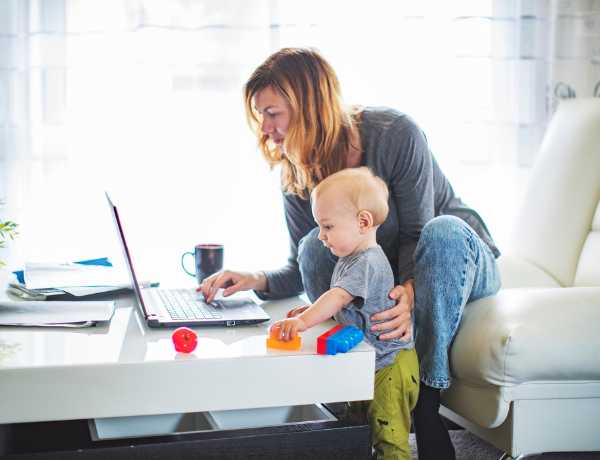7 Co-Parenting Tips After Divorce Mediation

Divorce mediation can be a helpful process for couples seeking to end their marriage while minimizing conflict and stress. However, even with the help of a mediator, co-parenting after a divorce can still be challenging.
What is Co-Parenting?

Co-parenting is a parenting arrangement where two or more people share the responsibilities and duties of raising a child or children, even if they are not in a romantic relationship. This can include divorced or separated parents, same-sex couples, or friends who choose to raise a child together. Co-parenting requires communication, compromise, and a commitment to putting the child's needs first.
What Are the Benefits of Co-Parenting?
Co-parenting has many benefits, such as sharing the responsibilities of raising a child, creating a stable and consistent environment for the child, and providing emotional support for both the child and the co-parents. It also allows for more flexibility in scheduling and can potentially reduce the financial burden of raising a child. Additionally, co-parenting can foster a positive relationship between the child and both parents, which is important for their overall well-being.
What is a Divorce Mediator?
A divorce mediator is a neutral third party who helps couples going through a divorce to reach mutually agreeable decisions regarding property division, child custody, and support payments. The mediator facilitates discussions between the couple and assists them in finding common ground and resolving disputes in a peaceful and respectful manner. The goal of a divorce mediator is to help the couple avoid the time, expense, and emotional toll of a courtroom battle, and to promote a more amicable and cooperative divorce process. If you need help with your divorce and mediation is right for you, contact us to get started.
6 Tips For Successful Co-parenting after divorce mediation
Here are some tips for successful co-parenting after divorce mediation in New York:
1. Communicate Openly And Respectfully
Communication is key to any successful co-parenting relationship. After a divorce, it can be difficult to communicate effectively, especially if there are still unresolved issues. Make an effort to communicate openly and respectfully with your co-parent. This means avoiding blaming, shaming, or name-calling, and instead focusing on finding solutions to problems.
2. Create a Parenting Plan
A parenting plan is a written agreement between co-parents that outlines the responsibilities and expectations of each parent. This plan should include details such as visitation schedules, holidays, transportation arrangements, and how decisions will be made regarding the children's upbringing. Having a clear and comprehensive parenting plan can help to avoid misunderstandings and conflicts down the line.
3. Get Specific About Parent-Child Contact Details
When it comes to parent-child contact times, a lack of clarity in the parenting agreement can do more harm than good. For example, many agreements specify that all or some of the parenting time will just be “as agreed”. This statement essentially translates to “we'll figure it out as we go” - and unfortunately people don't always figure things out correctly down the line.
Not only does a lack of concrete details open the door for conflict and failure to meet expectations, but it also means children may not get the consistent access to their parents that they need for healthy relationships and emotional development.
To avoid these issues, parents should make sure their agreements are explicitly clear about parent-child contact details. Where possible, those agreements should outline exactly when each parent can have access to the child during the week or month. Specific dates and times should be put in place so both parties know exactly what is expected. Moreover, language should be included that allows for adjustments based on unforeseen circumstances and events such as vacations or taking care of sick relatives etc.
Having explicit parameters with built-in flexibility will help create an environment where both parents feel respected and secure in their relationship with their child.
4. Be Flexible
Life is unpredictable, and plans may need to be adjusted from time to time. Being flexible and willing to compromise can help to ensure that your co-parenting relationship remains positive and productive. This may mean being open to changes in schedules or making exceptions to the parenting plan when necessary.
5. Keep The Children's Best Interests In Mind
When co-parenting, it's important to prioritize the needs of your children. This means putting aside personal differences and working together to provide a stable and loving environment for your children. It also means avoiding negative talk about your co-parent in front of your children, as this can be damaging to their emotional well-being.
6. Seek Support If Necessary
Co-parenting after a divorce can be emotionally challenging. If you're struggling to cope with the changes, consider seeking support from a therapist, support group, or trusted friend. Taking care of yourself emotionally can help you to be a better co-parent and role model for your children.
7. Co-Parenting Requires Two Healthy Parents
Co-parenting is a challenging task that requires the participation of both parents. However, it is essential that both parents are healthy, both physically and mentally, to ensure that they can provide the best possible care for their children.
Conclusion
In summary, successful co-parenting after divorce mediation in New York State requires open communication, a clear parenting plan, flexibility, a focus on the children's best interests, and support when necessary. By following these tips, you can create a co-parenting relationship that is positive and productive for everyone involved. If you are looking for an easier approach to divorce, contact us to learn about divorce mediation.



